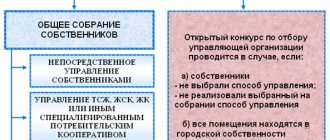Preface
This book is an element of a project called “Housing and communal services: questions and answers.” Therefore, let me tell you more about this project so that it becomes clear what to expect from the book.
* * *
The project “Housing and Communal Services: Questions and Answers” appeared in 2013, when a group of the same name was created on Vkontakte (https://vk.com/public55514766). At that time, I was only going to talk about the most important problems in housing and communal services and propose solutions to them, based on housing legislation. Not much time passed and I realized that housing and communal services require not just a description of problems and their legislative solutions, but also education. Legal education is first, housing education is second. From that moment on, the concept of the group began to change.
The peculiarity of my approach to housing and communal services, which I am trying to convey through the group, is clearly visible from the format of the posts: an extremely clearly formulated question and the shortest, but also the most complete, answer while maintaining clarity of presentation. This is extremely difficult to achieve. However, this is the only way to achieve precisely the goal of enlightenment. After all, owners of residential and non-residential premises, employers, and tenants often do not have time to read voluminous articles, and even filled with legal terminology. And the owners want to find an answer to their question, which means the question must be freed from all unnecessary things.
The purpose of education in housing and communal services is not just to answer housing questions. Many of these issues, and the most important ones, cannot be resolved without knowledge and understanding of civil law and civil law theory. Therefore, in my answers to housing questions, I have always sought not only to take into account the theory of civil law, but also to explain it to readers. This has a double benefit: conclusions on housing issues are better substantiated and readers learn things that will be useful to them not only in housing problems. After all, civil law is the basis for almost all transactions in which all citizens and organizations participate in an effort to obtain goods, works or services.
The above applies to the content side of the activity. As for the form, I have always strived to use the most popular ways for readers to obtain information. In addition to the VKontakte group, a channel on Yandex was launched in 2020. Zen (https://zen.yandex.ru/gkh). Now this is the largest channel for housing and communal services on the service, individual entries on which reach 500 thousand reads. Recently, I started producing podcasts - a rapidly gaining popularity as a way of obtaining information. The podcast also has a video version.
The book “Housing and Communal Services: Questions and Answers” is the meaning-forming center of the project. The book examines the most common, interesting and complex issues related to the maintenance and management of apartment buildings, payment of housing and communal services, holding general meetings, choosing a method of managing the house, etc.
* * *
The fourth edition of the book differs significantly from previous ones. Below is a list of the most important changes:
1) more than 100 answers to questions that have arisen in the housing sector over the past year have been added;
2) the structure of sections, parts and the location of questions has been clarified to make searching easier;
3) added cross-references that allow you to better navigate the book;
4) all references to regulations and judicial practice were checked, and current court decisions were added;
5) new parts of sections devoted to direct contracts and removal of MSW have been added;
6) a new application “Theory of Civil Law” has been added;
6) improved style.
* * *
The book is divided into two blocks: the main one, which provides answers to questions, and the appendix, which includes materials that will be useful to owners.
Prefaces the main block “Review of regulations in housing and communal services”, which contains a brief overview of the most important GOSTs. These documents will be useful in determining the management standard for apartment buildings.
Next comes “Important Changes in Housing and Communal Services,” which contains a historical overview of the main changes in housing legislation over the past three years. The historical approach to the analysis of legislation is one of the most productive ways of interpreting the law. Knowing the history of housing law institutions, one can better understand both these institutions themselves and the prospects for their further development.
The main block consists of sections, which in turn are divided into parts that unite a group of questions. The grouping of sections, parts and questions is carried out on a thematic basis. For example, the first section combines all questions devoted to the status of common property in the house.
Within questions, rules of law, court decisions, and departmental letters are highlighted in bold and cross-referenced throughout the text. When using links, you must remember the following rule. If the link consists of three digits, then the first digit is the section number, the second is the part number, and the third is the question number. For example, link 2.2.2 leads us to question 2 “Who determines the composition of common property” in part 2 “The procedure for the emergence of common property” of the “Common Property” section. If the link consists of two numbers, then the first is the section number, and the second is the question number. Links to questions are in italics.
The block of applications includes, first of all, the theses “Theory of Civil Law”. This app is not a substitute for reading a good civics textbook. My goal was to show you those basic concepts from legal theory, legal categories, ideas that help me in the analysis of legal problems. I am sure that this will help you too and will be useful. You can also use theses in parallel with reading the textbook; this will allow you to highlight the most important sections of the theory of civil law, which will be useful specifically in the analysis of housing legal relations.
In the appendix “Judicial Practice in Civil Law” I have collected the most important positions of the highest courts, courts of general jurisdiction and arbitration courts that relate to the institutions of civil law. When selecting, I was guided by the tasks that lawyers have to solve in housing legal relations, when the normative regulation contained in housing legislation is not enough.
* * *
I express my deep gratitude to my wife E. A. Nazarova-Korsakova, who not only took on the difficult task of administering the project on the Internet, but also, starting from the first edition, assisted me in preparing the book.
* * *
If you find errors, typos in the book, and also if you have suggestions, wishes, then you can write to me at
Ruslan Nazarov
FAS has prepared proposals for the transfer of housing and communal services in the regions into private hands
Private business, according to FAS proposals, should account for at least 40% of the housing and communal services market. The FAS representative refused to comment on the figures from the project, pointing out that its final version is not yet ready.
Market volume of 2.4 trillion rubles.
The volume of the housing and communal services market in 2020 amounted to 2.4 trillion rubles. , the Bussinesstat study said, this is almost one and a half times its size in 2012. “The indicator grew both due to an increase in the natural volume of the market and due to an increase in tariffs for housing and communal services,” analysts note. According to their forecast, until 2021 the market will continue to grow at a rate of 4–6% annually (in physical terms, that is, in terms of the number of premises served). A state program to provide comfortable housing can accelerate growth, but low real incomes of citizens can slow it down, Bussinesstat pointed out. Housing and communal services account for 27.5% of the total volume of paid services provided to the population, according to the Government Analytical Center.
Read on RBC Pro
Michael Dell: “I’ll worry about the company’s affairs even after I die” Dream job: which employees are really happy working remotely Anti-crisis marketing: how to work through a crisis to your advantage Lean management tools: vision boards and stand-up meetings
The question is whether, in principle, there is a “housing and communal services market” - this is old terminology, and now housing and communal services are, in fact, separate industries, argues Andrei Shirokov, chairman of the Chamber of Commerce and Industry Committee on Entrepreneurship in the Housing and Communal Services Sphere. The housing sector is managed by individuals or legal entities or public organizations representing them, while the state is responsible for the utility sector, he recalls. Because of this, it is impossible to calculate the sector’s share at 40%, the expert believes.
Even when the private sector is present in the housing and communal services sector, the state must still set quotas, notes EY partner Valentina Fedoseeva. “From the point of view of goal setting, the housing and communal services sector is controlled by the state. The presence of the private sector in housing and communal services exists throughout the world, but the leading and controlling role remains with the state,” she points out.
Second option
Even housing and communal services enterprises that remain in regional ownership should not be managed by the state. FAS proposes to transfer objects owned by constituent entities or municipalities into a concession (an agreement under which a private company invests in a state-owned object and uses it free of charge). It is proposed to do this by 2020 through competitive procedures.
But investors do not consider the concession a good investment tool, Shirokov points out, this is due to the “political tariff.” The state “gets involved in regulating tariffs from the point of view of flirting with the population,” and therefore companies will not be able to recapture investments, Shirokov points out: “Until there is a correctly calculated investment tariff, the concession [in housing and communal services] will not fully work.” With the proper degree of management efficiency, companies can return investments in housing and communal services, argues Fedoseeva.
The idea of privatizing housing and communal services was discussed in the government in 2011, the issue was dealt with, in particular, by the Ministry of Regional Development (abolished in 2014), Vedomosti wrote. However, as Kommersant later reported, the authorities decided to abandon these plans. The publication's sources explained this by the government's fears due to the likelihood of social disasters in the event of bankruptcy of private owners of housing and communal services enterprises.
The state is increasingly exerting administrative influence on the industry and is dealing with “issues other than its own,” Shirokov says. Social factors can again slow down privatization: if the state transfers socially significant utility facilities to private investors, it will depend on them, the expert adds. Utilities must be controlled by the authorities, Shirokov emphasizes.
Social risks in the housing and communal services sector always exist, Fedoseeva points out. But they should be minimized by the same state control through concession agreements or other legal instruments. “At the same time, a balance needs to be maintained so that businesses are not afraid to enter the housing and communal services sector,” says Fedoseeva.
Regions with self-sufficient budgets “do not feel an urgent need to reduce government participation in competitive markets, since the budgets of such entities can cope with their most costly projects,” the FAS notes in the document. The department cites Moscow as an example, where most of the work on improvement and operation of the housing stock and road network is carried out by state unitary enterprises and budgetary institutions - they account for 70% of all enterprises in the industry in the capital.
46% state
Other proposals in the report include the privatization of non-core assets of companies in which regions own shares, as well as the sale of state shares in companies operating in competitive markets. The FAS has repeatedly insisted on denationalizing the economy; at the end of the year, President Vladimir Putin signed a plan to increase competition, which also included reducing the state’s share of GDP.
The expansion of the public sector in Russia has become a clear trend, wrote experts from the Center for Strategic Research of Alexei Kudrin. The share of the public sector in GDP, according to the Center for Social Development, amounted to 46% at the end of 2020, although back in 2006 it was at the level of 39.6% . The center proposes to conduct an inventory of state property, abolish irrelevant restrictions on privatization and reduce the number of small enterprises on the state balance sheet.
Regulations
Federal laws
– Housing Code 12/29/2004 No. 188-FZ
– Federal Law “On Production and Consumption Waste” dated June 24, 1998 No. 89-FZ
– Federal Law “On Water Supply and Sanitation” dated December 7, 2011 No. 416-FZ
– Federal Law “On Electric Power Industry” dated March 26, 2003 No. 35-FZ
– Federal Law “On Gas Supply in the Russian Federation” dated March 31, 1999 No. 69-FZ
– Federal Law “On Heat Supply” dated July 27, 2010 No. 190-FZ
– Federal Law “On energy saving and increasing energy efficiency and on introducing amendments to certain legislative acts of the Russian Federation” dated November 23, 2009 No. 261-FZ
Decrees of the Government of the Russian Federation
– Decree of the Government of the Russian Federation dated May 6, 2011 No. 354 “On the provision of utility services to owners and users of premises in apartment buildings and residential buildings”
– Decree of the Government of the Russian Federation dated 02/06/2006 No. 75 “On the procedure for holding an open competition by a local government body for the selection of a management organization to manage an apartment building”
– Decree of the Government of the Russian Federation dated February 14, 2012 No. 124 “On the rules required when concluding contracts for the supply of utility resources”
– Decree of the Government of the Russian Federation dated August 13, 2006 No. 491 “On approval of the Rules for the maintenance of common property in an apartment building and the rules for changing the amount of payment for the maintenance of residential premises in the case of the provision of services and performance of work on the management, maintenance and repair of common property in an apartment building of inadequate quality and (or) with interruptions exceeding the established duration"
– Decree of the Government of the Russian Federation dated October 28, 2014 No. 1110 “On licensing business activities for the management of apartment buildings”
– Decree of the Government of the Russian Federation dated December 21, 2018 No. 1616 “On approval of the Rules for determining a management organization for managing an apartment building, in respect of which the owners of premises in the apartment building have not chosen a method of managing such a house or the chosen management method has not been implemented, a management organization has not been identified, and o introducing amendments to certain acts of the Government of the Russian Federation"
– Decree of the Government of the Russian Federation of May 15, 2013 No. 416 “On the procedure for carrying out activities for the management of apartment buildings”
– Decree of the Government of the Russian Federation dated April 3, 2013 No. 290 “On the minimum list of services and work necessary to ensure proper maintenance of common property in an apartment building, and the procedure for their provision and implementation”
– Decree of the Government of the Russian Federation dated June 24, 2017 No. 743 “On the organization of the safe use and maintenance of elevators, lifting platforms for the disabled, passenger conveyors (moving walkways), escalators, with the exception of escalators in subways”
– Decree of the Government of the Russian Federation of May 14, 2013 No. 410 “On measures to ensure safety when using and maintaining indoor and indoor gas equipment”
– Decree of the Government of the Russian Federation of November 12, 2016 No. 1156 “On the management of municipal solid waste and amendments to the Decree of the Government of the Russian Federation of August 25, 2008 No. 641”
– Decree of the Government of the Russian Federation dated July 17, 1995 No. 713 “On approval of the Rules for registration and deregistration of citizens of the Russian Federation at the place of stay and place of residence within the Russian Federation and the list of persons responsible for receiving and transferring documents for registration to the registration authorities and deregistration of citizens of the Russian Federation at the place of stay and place of residence within the Russian Federation"
Orders of the Ministry of Construction of the Russian Federation
– Order of the Ministry of Construction of Russia dated January 28, 2019 No. 44/pr “On approval of the Requirements for the preparation of minutes of general meetings of owners of premises in apartment buildings and the Procedure for sending the originals of decisions and minutes of general meetings of owners of premises in apartment buildings to the authorized executive authorities of the constituent entities of the Russian Federation that carry out state housing supervision"
– Order of the Ministry of Construction of Russia dated July 31, 2014 No. 411/pr “On approval of the approximate terms of the management agreement for an apartment building and methodological recommendations on the procedure for organizing and holding general meetings of owners of premises in apartment buildings”
– Order of the Ministry of Construction of Russia dated December 25, 2015 No. 938/pr “On approval of the Procedure and timing for making changes to the register of licenses of a constituent entity of the Russian Federation”
Housing and communal services: QUESTIONS AND ANSWERS.
Living in an apartment building, each of us is obliged to pay our share of its maintenance, repairs, and utilities received. But in life it often happens that we, without receiving these same services, pay extra money for them. How to force the Management Company to work honestly, so that the entrance is clean and bright, the elevator works, cosmetic and major repairs are done on time, all communications function normally, the local areas, children's and sports grounds and recreation areas are kept in order. The legislation of the Russian Federation has real and effective mechanisms for protecting the rights of tenants; you just need to be able to use them. Knowing your rights and understanding how to act is necessary for everyone. Here are the most basic questions that any adult citizen living in an apartment building should know the answers to.
Who are the employers and owners?
Tenants of residential premises are persons using residential premises under a social tenancy agreement and a lease agreement for residential premises of the state or municipal housing stock. Owners of premises are persons (individuals and legal entities) who have ownership rights to premises (privatized premises, those who bought it, etc.), including those who provide premises to tenants under rental agreements.
What belongs to the owners of the premises, except their own premises (apartment)?
The owners of premises in an apartment building, by right of common shared ownership, own the common property of the house, namely:
- premises in a house that are not parts of apartments and are intended to serve more than one room in a house, including inter-apartment landings, stairs, elevators, elevator and other shafts, corridors, technical floors, attics, basements in which there are utilities, other equipment serving more than one room in a given house (technical basements);
- roofs enclosing load-bearing and non-load-bearing structures of a given house, mechanical, electrical, sanitary and other equipment located in a given house outside or inside the premises and serving more than one room;
- the land plot on which this house is located, with elements of landscaping and landscaping and other objects intended for the maintenance, operation and improvement of this house, located on the specified land plot (hereinafter referred to as the common property in the apartment building). The boundaries and size of the land plot on which the apartment building is located are determined in accordance with the requirements of land legislation and legislation on urban planning. (Housing Code of the Russian Federation, Article 36, paragraph 1)
What is apartment building management?
Management of an apartment building is:
- ensuring favorable and safe living conditions for citizens;
- proper maintenance of common property in an apartment building;
- resolving issues of use of the specified property; provision of utilities to citizens living in such a house. (LC RF, art. 161, clause 1)
Who manages the apartment building?
An apartment building is managed by the owners of the premises. Owners of premises, unlike tenants, take part in resolving all issues related to the house, including the formation of payments, the formation of a list of services, etc.
What methods of home management are there?
Owners of premises in an apartment building are required to choose one of the following methods of managing an apartment building:
- direct management of the owners of premises in an apartment building (all issues are resolved at a general meeting of owners);
- management of a homeowners' association, or a housing cooperative or other specialized consumer cooperative (owners create a cooperative or HOA to manage the house;
- management of a management organization (a meeting of homeowners makes a decision on cooperation with one or another organization and entrusts it with managing the house). (LC RF, art. 162, clause 2, clause 3).
How is a management organization appointed if the owners have not made a decision on its selection?
If the owners have not chosen a way to manage the house, then the authorized local government body holds an open competition to select a management organization to manage the house. The winner of the competition receives the right to manage an apartment building. (LC RF, art. 161, clause 4).
How is an agreement concluded with a management company if the owners did not decide to enter into an agreement?
The local government body, within ten days from the date of the open competition, notifies all owners of premises in an apartment building about the results of the competition and the terms of the building management agreement. (LC RF, art. 161, clause 5)
The winner of the competition, within 20 days from the date of approval of the competition protocol, sends the draft agreements for the management of an apartment building signed by him to the owners of premises in the apartment building for the signing of these agreements. (Rules for holding an open competition by a local government body to select a management organization to manage an apartment building, approved by Decree of the Government of the Russian Federation dated February 6, 2006 No. 75, as amended on July 18, 2007).
What are the responsibilities of the management organization for maintaining the house and providing utilities?
Under the agreement for the management of an apartment building, the management organization undertakes, for a fee, to provide services and perform work on the proper maintenance and repair of common property in the building, and to provide utilities to the owners of the premises and persons using the premises in this building. (LC RF, art. 162, clause 2).
What should be in a management agreement for an apartment building?
The management agreement for an apartment building must indicate:
- the composition of the common property of an apartment building in respect of which management will be carried out and the address of such a building;
- a list of services and works for the maintenance and repair of common property in an apartment building, the procedure for changing such a list, as well as a list of utilities provided by the management organization;
- the procedure for determining the price of the contract, the amount of payment for the maintenance and repair of residential premises and the amount of payment for utilities, as well as the procedure for making such payment;
- the procedure for monitoring the management organization’s fulfillment of its obligations under the management agreement. (LC RF, art. 162, clause 3).
How can you find out which management company is managing your home if they haven't provided you with a contract?
Information about the management company must be contained in the payment document (receipt) for payment of residential premises and utilities.
What rights do owners have to control the activities of the management organization?
Owners of premises, in accordance with the terms of the agreement, have the right to:
- receive from the management organization information about the lists, volumes, quality and frequency of services provided and (or) work performed;
- check the volume, quality and frequency of provision of services and performance of work (including by conducting an appropriate examination). (Rules for maintaining common property in an apartment building, approved by Decree of the Government of the Russian Federation dated August 13, 2006 No. 491.)
What are the responsibilities of the management company to provide answers to requests from owners?
The management company is obliged to provide, at the owner’s request, within three working days documents related to the fulfillment of obligations under the apartment building management agreement. (Rules for holding an open competition by a local government body to select a management organization to manage an apartment building, approved by Decree of the Government of the Russian Federation dated February 6, 2006 No. 75, as amended on July 18, 2007).
What does the amount in the payment slip consist of?
The rent for residential premises for the tenant includes:
- payment for the use of residential premises (rental fee);
- payment for the maintenance and repair of residential premises, which includes payment for services and work on the management of an apartment building, maintenance and routine repairs of common property in an apartment building.
The fee for residential premises for the owner includes:
payment for the maintenance and repair of residential premises, which includes payment for services and work on the management of an apartment building, maintenance and routine repairs of common property in an apartment building.
Utility fees for the owner and tenant include:
payment for cold and hot water supply, sewerage, electricity supply, gas supply (including the supply of domestic gas in cylinders), heating, heat supply (including the supply of solid fuel in the presence of stove heating). (LC RF, Art. 154)
When is the payment for residential premises recalculated?
In case of provision of services and performance of work of inadequate quality and (or) with interruptions exceeding the established duration, the management organization is obliged to reduce the amount of fees for the maintenance and repair of residential premises.
When are utility bills recalculated?
- When providing utility services of inadequate quality and (or) with interruptions exceeding the established duration, the amount of payment for each utility service is subject to reduction;
- In the event of interruptions in the provision of utility services exceeding the established duration, as well as when preventive maintenance is carried out once a year, the payment for utility services is reduced by the amount of the cost of unprovided utility services.
Review of regulations in housing and communal services
GOST R 51617—2014 Housing and communal services and management of apartment buildings. Public utilities. General requirements
This GOST R was developed by a non-profit partnership of management companies. Therefore, it has absorbed all the typical errors in understanding the legal regulation of the activities of management organizations. Unfortunately, since the document has become GOST, it must be applied. Let's see what fundamental points are contained in GOST 51617-2014
.
First. Utilities and community resources. Perhaps the only positive point in GOST is the clear distinction between public services and public resources. Management organizations provide consumers not with utility resources, but with utility services. The difference is this.
Utilities are gas, water, electricity, etc. Utilities include not only gas, water or electricity, but also the maintenance of common property, as well as a number of other actions of the management organization. For example, within the framework of heat supply, GOST R provides, as part of public utilities, for the implementation of work to maintain utility networks in a regulatory manner, ensure the efficient operation of the ventilation system, and increase the efficiency of thermal protection.
Second. A management contract is a contract for the provision of services. This conclusion follows from clause 3.2 of GOST RF 51617—2014
. That's a moot point. However, now, for example, I am still inclined to believe that a management agreement is a service agreement. This is not a contract, not an agency agreement. Under a management agreement, owners are provided with the service of managing the house, rather than work on maintaining the house. Of course, house maintenance work is provided as part of management services. But the subject of the contract is management services.
Third. Composition of public services. As follows from clause 4.2 of GOST R 51617-2014
the composition of utilities depends on the availability of appropriate engineering networks in the house, as well as on the availability of engineering systems for supplying resources on the territory of the municipality. In addition, the composition of services, which is quite logical, is determined by whether the home’s networks are connected to centralized networks.
Fourth. Regulatory requirements for public services. GOST provides links to regulatory requirements for the provision of utility services.
Heat supply: SNiP 2.01.01
.
Hot water supply: GOST R 51232, SanPiN 2.1.4.2496-09, SanPiN 4723-88, SanPiN 2.1.4.1074-01
.
Cold water supply: GOST R 51232, SanPiN 2.1.4.1074-0, SNiP 2.04.01
.
Water disposal: SNiP 2.04.01, VSN 58-88 (r), Order of the State Construction Committee of the Russian Federation dated December 30, 1999 No. 168
.
Power supply: GOST 13109, GOST 29322, SP 31-110-2003, Order of the Ministry of Energy of the Russian Federation dated January 13, 2003 No. 6
.
Gas supply: GOST 5542, GOST 20448, Decree of the Government of the Russian Federation of July 21, 2008 No. 549, Decree of the Government of the Russian Federation of May 14, 2013 No. 410
.
Fifth. Responsibilities of the management organization. GOST R establishes many new responsibilities of the management organization:
1) dispatch and emergency repair services;
2) development of procedures for taking meter readings, the fact of provision of utility resources and services of inadequate quality. The management organization must have an official for each area;
3) the availability of an electronic information program for calculating housing fees;
4) the presence of qualified specialists capable of disconnecting or limiting utility services;
5) availability of specialists to conduct claims work;
6) availability of a specialist in working with resource supply organizations;
7) availability of specialists to ensure the regulatory maintenance of utility networks;
 quality control of the provision of public services, including conducting surveys, studying documentation, etc.
quality control of the provision of public services, including conducting surveys, studying documentation, etc.
Sixth. Not all of the above specialists must be on the staff of the management organization. GOST 51617
allows the conclusion of agreements with third parties who will assume part of the responsibilities of the management organization.
This grossly violates Art.
313 of the Civil Code of the Russian Federation , since on the merits of the legal relationship between management organizations and owners, the execution of a management agreement can only be personal.
GOST R 51929—2014 Housing and communal services and management of apartment buildings. Terms and Definitions
Value of GOST R 51929—2014
difficult to overestimate. Housing legislation lacks regulatory definitions of the most important concepts. This GOST R largely solves this problem. Please pay attention to the following.
The first is a safe state. A safe state refers to the property of a house to resist transition to an emergency state. The meaning of this concept is that the management of the house must ensure safe living ( part 1 of article 161 of the Housing Code of the Russian Federation
).
The second is indoor equipment. In GOST R 51929—2014
This means equipment that 1) is located in the apartment, 2) has a connection to the in-house utility network system. Moreover, the equipment connected to the first locking connection or device will be in-house.
Third, the boundary of operational responsibility. According to GOST R, the border is determined by agreement of the parties, but, as a rule, by the first locking device. If the agreement of the parties does not define the boundary of operational responsibility, then it is necessary to be guided by the boundary of balance sheet ownership.
Fourth – comfortable living conditions. This concept is also related to the goals of house management specified in Art. 161 Housing Code of the Russian Federation
. Comfortable means living conditions that meet regulatory requirements.
Fifth - an apartment building. Perhaps this is the most important definition in GOST R 51929-2014
. Of course, the Decree of the Government of the Russian Federation has already given the definition of an apartment building, but the definition given in GOST R is more complete. So, an apartment building is understood as 1) a capital construction facility, which includes 2) an intra-building engineering system, 3) common areas that are not part of the apartments, 4) other premises that do not belong to individual owners, 5) residential premises intended for the residence of two and more families, 6) and these premises have independent exits to common areas. Blocked buildings do not qualify as multi-apartment buildings. An apartment building includes built-in and (or) attached non-residential premises and adjacent territory (land).
Sixth – maintenance of the common property of an apartment building. In GOST R, this is understood as 1) continuous and 2) permanent implementation of a set of works and services that are included in the work plan, list of works and services, as well as additional types of work and services. Each of these categories is disclosed separately in GOST R.
Seventh – apartment building management service. In GOST R this is understood as the activity of organizing processes, works and services. Please note that the management service is not the same in nature as the services and work related to home maintenance. Management service is precisely the activity of organizing processes, works and services, and not the works and services themselves.
Test your knowledge!
At the initiative of the NP “National Center for Public Control in the Housing and Public Utilities Sphere “Housing and Public Utilities Control”, the “All-Russian Housing and Public Utilities Dictation” is being held in Russia. This is the first project in the country that is designed to attract the attention of citizens to the basics of housing and communal services, and also helps to popularize knowledge in this area and increase the legal literacy of consumers of housing and communal services.
The dictation is an online test consisting of 30 questions that must be answered within 45 minutes. This is more than enough to test your knowledge. The test can be taken remotely, as they say, without leaving your home. After answering the questions, each subject will receive information about which housing and communal topics he knows well and which he does not know very well. The questions were prepared with the participation of experts from the Ministry of Construction and Housing and Communal Services of the Russian Federation and the state corporation - the Housing and Communal Services Reform Assistance Fund. When compiling the test, it was taken into account that it was also intended for non-experts in the industry. Therefore, the questionnaire was not complicated. While completing assignments, it is not forbidden to search for reference information on the Internet or other sources. In addition, the writers of the test took into account the most pressing problems for citizens: the payment mechanism, major repairs, and management issues of apartment buildings.
When composing the questions, we did not pursue the idea of “catching” a person for lack of knowledge. On the contrary, the dictation is intended to stimulate citizens to a deeper study of the issues that they encounter almost every day. If the answer is incorrect, the participant has the opportunity to look at the correct option. In addition, before writing a dictation, any test taker can go through a preliminary, training stage in order to understand in advance what to prepare for.
The test results will help the NP “Housing and Communal Services Control” find out what issues people need to understand first of all, and in the future be guided by these data when working on housing education of the population. It is planned that the “All-Russian Dictation of Housing and Communal Services” will become a permanent event, and the test questions will be adjusted taking into account the improvement of housing legislation.
Deputy Chairman of the State Duma Committee on Housing Policy and Communal Services Pavel Kachkaev:
This test is certainly of interest to members of the councils of apartment buildings, active pensioners, employees of management organizations, and employees of municipalities. When I often travel around the country on business, I notice that often even building managers and some officials ask questions in a completely unprofessional manner. Everyone should know the basics of housing and communal services!
Go to the testing page to WRITE A DICTANT...
Print
What types of cases do lawyers do?
Each lawyer on housing and communal services issues considers a number of issues in this legal area, which necessarily include difficulties and nuances:
- Evictions from residential space or non-residential buildings, premises through the court;
- Evictions from public housing;
- Evictions from privatized residential space;
- Evictions from your own apartment, your own house;
- Deregistration of residence in a municipal apartment, privatized, private housing, as well as deregistration of the owner of real estate;
- Legalization of unauthorized redevelopment in residential and non-residential premises through the court;
- Legalization of illegal redevelopment in offices, buildings and premises used for commercial activities;
- In resolving disputes with the developer company in court;
- Determining the share of a real estate property;
- Allocation of a share of housing in kind, division of personal accounts;
- Determining the procedure for payment for the provision of utility services;
- Causing damage to property (flooding of housing);
- Recognition of real estate transactions as invalid;
- Forced entry into an apartment, house;
- Housing disputes with HOAs, cooperatives, management companies;
- Privatization of residential real estate, relocation and eviction of residents, and so on.







